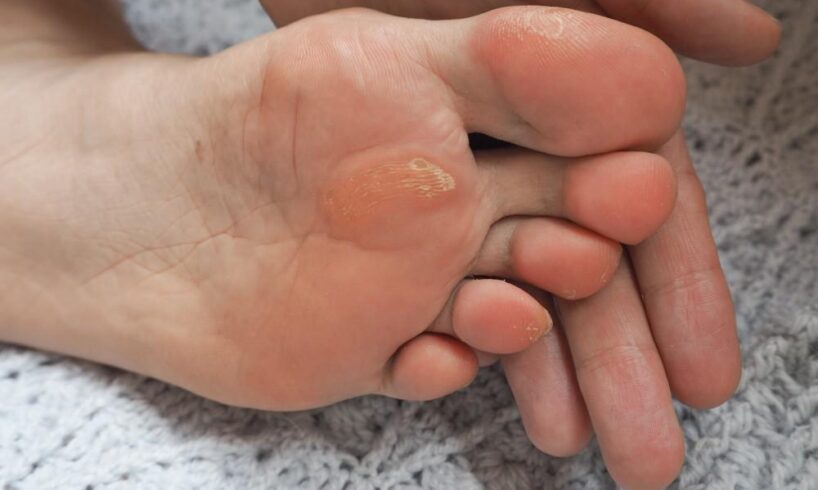
In most cases, calluses aren’t that serious. Sometimes, calluses need to be fixed at an immediate level. Generally, you can treat calluses on your own, except in worse cases. Keep your hands and feet clean, soaking in warm water, using callus remover to split the skin and healing salve for moisturizing and healing callused skin. Let’s discuss all about calluses in detail and some symptoms when you need to consult a doctor immediately.
How do calluses occur?
Calluses can occur on the hand and the foot, because of high pressure or friction. It is a hard-thick skin form on bare hands and feet to protect inner skin from getting infected.
We covered some tips for care for calluses that you can read in previous articles, but the best thing is still to avoid getting calluses in the first place.
Basic Tips to Prevent Calluses from Forming on Feet?
To prevent calluses from forming on hands and feet follow the maintenance tips mentioned below:-
• Keep your feet and hands clean:-Hygiene is important in general, especially for feet as it is more susceptible to infection than most other areas, specifically if you have diabetes.
• Wear arch supports:- Wearing sport on feet can help make a pair of shoes more comfortable. Especially if you have flat feet. It will help to alleviate pain and keep your foot structure healthy. Because even weight distribution is necessary to prevent calluses from forming.
• Wear good shoes and socks. Believe it or not, just like shoes, socks of improper size can cause calluses. Therefore socks and shoes should be supportive and comfortable with your feet which is extremely important.
Some Symptoms of Untreated Calluses
In case your calluses are causing you pain or seem abnormal. Then it’s time to consult a podiatrist. Some symptoms may include:-
• Tenderness around the callus
• Pus or fluid draining from the callus
• Discoloration
• Swelling
• Fever
• Pain
• Discomfort or pain while walking or standing
What’s the Worst That Could Happen?
- In the worst case, amputation can happen if you are diabetic. Because in such cases calluses thickened very much. Sometimes calluses split open and get infected.
- In rare cases, it can also turn into ulcers( sores on the feet). Therefore it’s necessary if you find any of the above symptoms then recognize them and go to the podiatrist because it’s necessary.
However, if you don’t have diabetes, there are rare chances that complications will occur, but it can still happen. Especially in the case of infection, it’s necessary that you must see a doctor right away so your infection doesn’t spread to the bone or the bloodstream. Again, though these are worst-case scenarios, it’s always better to be safe than treat later and welcome uninvited serious problems which may become unmanageable or do permanent damage later.
Treatments for calluses
Treating calluses properly is necessary. Untreated calluses can lead to:
- Infection:- Infected calluses can cause multiple issues. In some rare cases, bacteria from the infected area can spread to the joints and bone tissue.
- Changes in posture and body alignment. It can also disrupt your natural posture and cause body alignment issues in which your knees and back can be infected.
- Complications in people with diabetes may lead to untreated calluses. Treatment for calluses at an initial stage can easily be done on your own. You can follow these tips to treat calluses.
- Soak your hands in warm water for a few minutes to soften your hard callused skin.
- Shave your hard callus skin to prevent your callused skin from irritation. You should shave callused skin with a callus performance remover tool professionally.
- Keep your hard and thick callus skin hydrated through callus performance healing salve. Its ingredients also help in healing calluses.
Calluses are a badge of honour for athletes and they can be treated through care. But there are some rare cases such as if a person is diabetic then infection can spread and become a major issue. Therefore you should consult a podiatrist when you find the above-mentioned symptoms.








